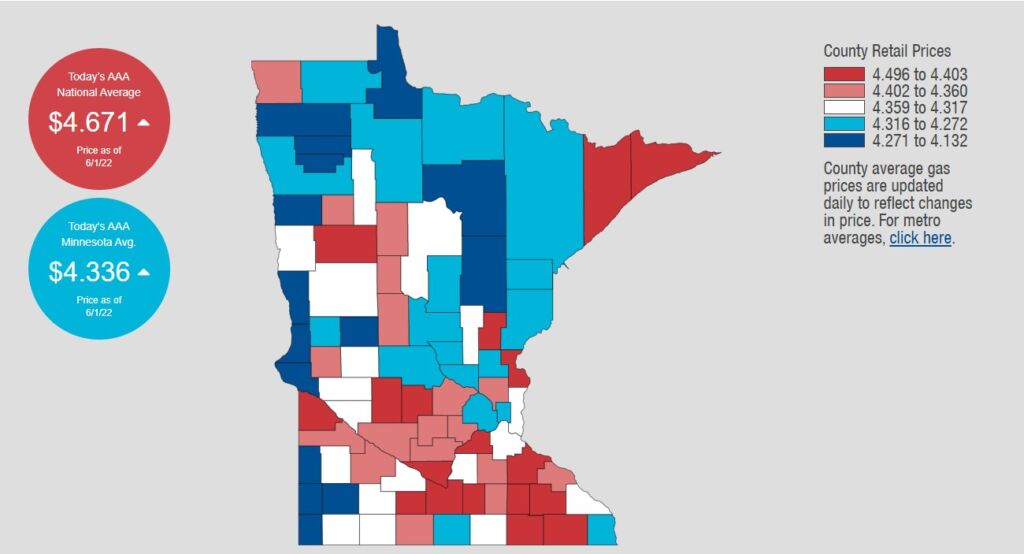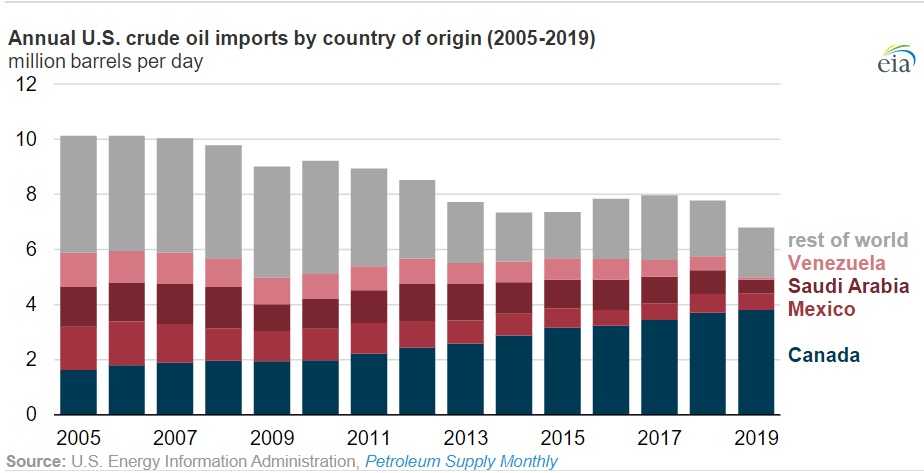Minnesota gas prices are at record highs. Thanks, Biden
Minnesota gas prices are at new record highs, with data from AAA showing the average cost of a gallon of regular gasoline at $4.33, breaking the previous record set in 2013. The pain caused by rising prices at the pump is a good reminder that elections at the state and federal levels have consequences.

Biden’s Energy Obstruction
Upon being sworn into office, President Biden immediately began undermining domestic energy security by canceling the leases to the Keystone XL pipeline, which would have transported Canadian oil to the United States. This is significant because Canada is the largest source of crude oil imports for the U.S.

Some have argued that Biden’s cancelation of the leases was symbolic and unimportant to today’s prices because it wouldn’t have started transporting oil until next year, but this is wrongheaded. For one, 2023 isn’t far away, and two, symbols are important because they are anecdotes intended to convey a greater meaning, which is why they are so powerful.
By canceling the leases on a pipeline that had already passed years of environmental review and spent billions of dollars on prep work, Biden sent a powerful signal to the oil and gas industry that this administration was more concerned with impeding energy production and transportation than following the rules. This affected the willingness of oil and gas companies to invest capital, bringing more supply online.
Biden has also sent many more chilling signals to the industry. The President has delayed or canceled drilling leases on several occasions, and his appointment of then-Representative Deb Haaland, a staunch opponent of energy and mineral development on federal land, to lead the Department of the Interior was another sign that his administration was intent on stiffing American energy output. Upon taking office, Secretary Haaland revoked several Trump-era initiatives designed to boost oil, natural gas, and coal production on federal land.
On May 20, 2021, Biden issued an executive order on Climate-Related Financial Risk that would artificially increase regulatory burdens on the oil and gas industry by increasing the “risk” the federal government undertakes in doing business with them.
On Oct. 29, 2021, the Bureau of Land Management announced the use of social costs of carbon in decision-making for approving permits for oil and gas drilling.
In March of 2022, the Biden administration proposed new regulations at the Securities and Exchange Commission (SEC) mandating climate-related disclosures. Opponents of the rules argue SEC rule would afford some financial institutions and ESG investor groups just another rationale to deny capital lending to companies. This is likely exactly what the Biden administration wants.
President Biden is not solely to blame for rising gas prices, but from day one, his policies have been designed to restrict American energy production when he should be celebrating our domestic energy companies and encouraging them to increase supply.
People may not have liked his demeanor, but I don’t think anyone will argue that President Trump was a far greater champion of the energy industry than President Biden, which would have helped prevent gas station inflation.